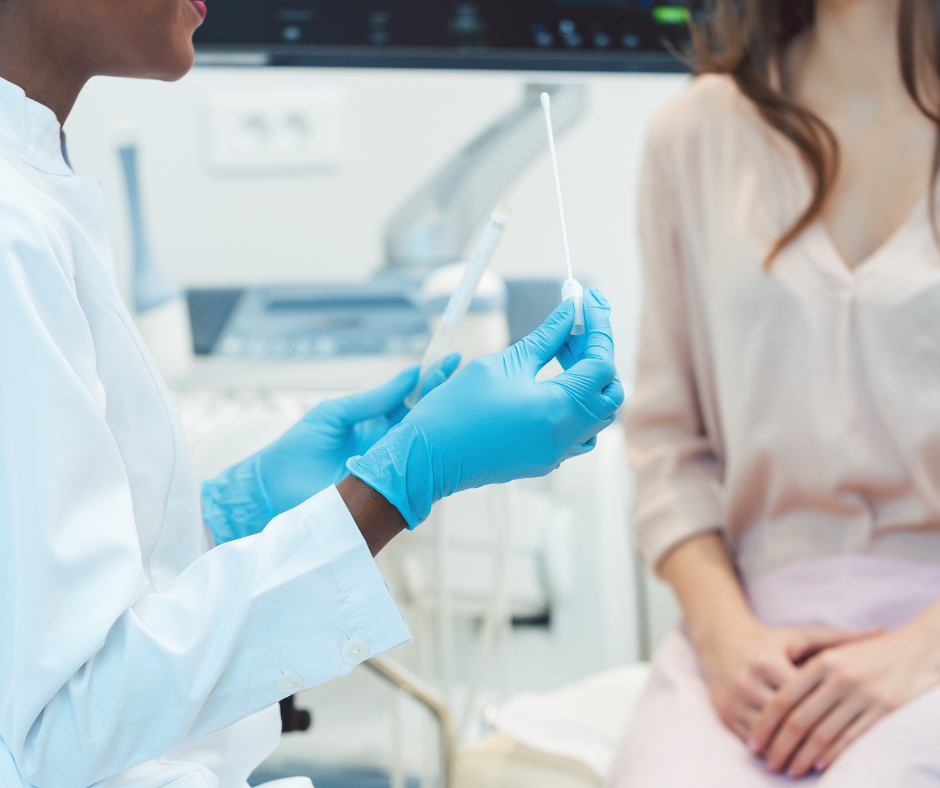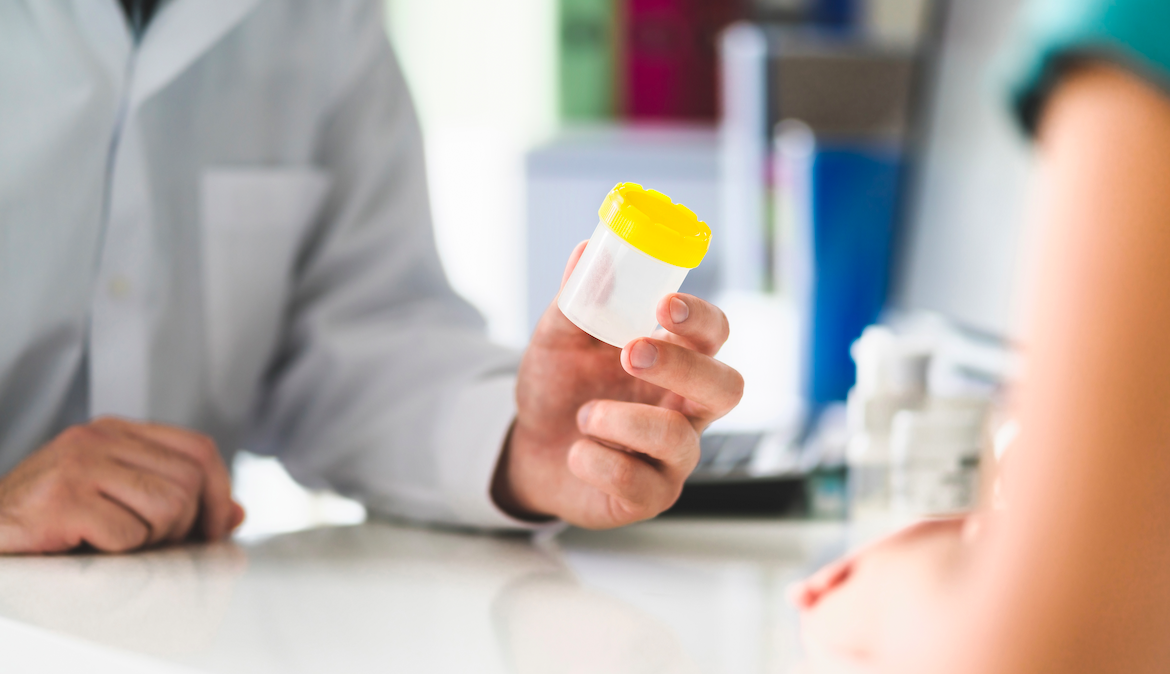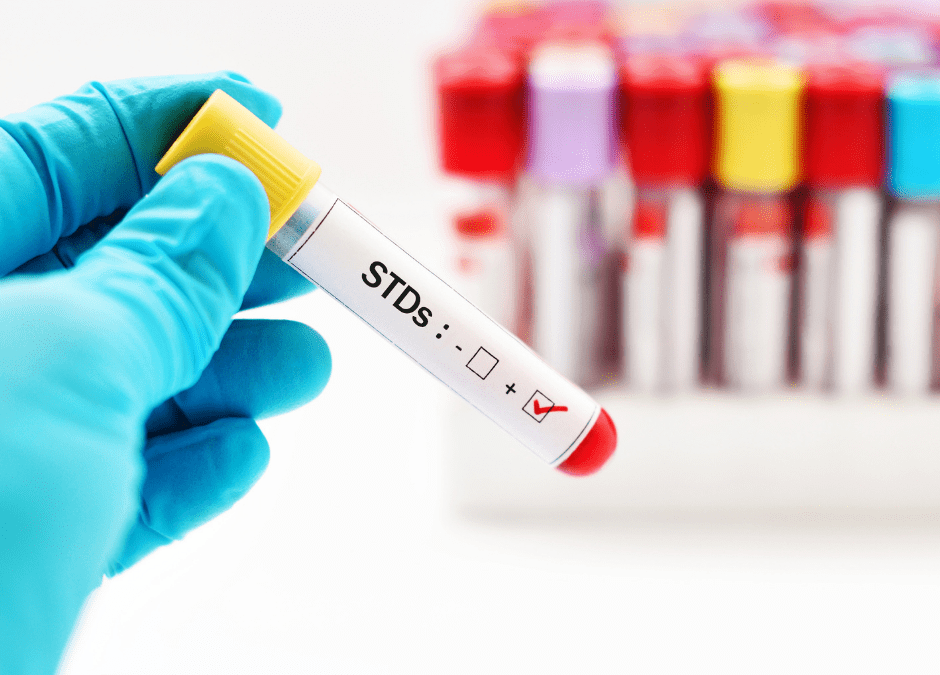Screening and diagnostic tests can be done in urgent care for various sexually transmitted diseases (STDs). Whether you have been possibly exposed, experiencing concerning symptoms, or just want to screen for routine monitoring we can take care of you and your sexual health.
Herpes Simplex Virus (HSV)
Genital herpes causes open sores/blisters that can be painful. Herpes can often be diagnosed based on physical exams along with certain lab results.
Culture/swab: This would involve sending a sample/scraping of a possible genital sore for evaluation
Blood test: This would test a sample of blood for the presence of HSV antibodies to detect past herpes infection.
There is no cure for herpes and it is a type of infection that can come and go (called outbreaks) Medications can be used to help sores heal faster, lessen the severity and/or duration of symptoms during an outbreak, reduce how often one has an outbreak, and minimize the risk of transmission to a partner.

Human Immunodeficiency Virus (HIV)
HIV tests are very accurate, but no test can detect the virus immediately after infection. How soon a test can detect HIV depends upon different factors, including the type of test being used. Urgent Care offers blood testing that is sent out to the lab. Results typically take 3-4 days to come back.
- Antigen/antibody tests- look for both HIV antibodies and antigens. Antibodies are produced by your immune system when you are exposed to viruses like HIV. Antigens are foreign substances that cause your immune system to activate. An antigen/antibody test performed by a laboratory on blood from a vein can usually detect HIV infection 18 to 45 days after exposure.
- Antibody tests– look for antibodies to HIV in your blood or oral fluid. Antibody tests can take 23 to 90 days to detect HIV infection after exposure. Most rapid tests and the only FDA-approved HIV self-test are antibody tests. In general, antibody tests that use blood from a vein can detect HIV sooner after infection than tests done with blood from a finger prick or with oral fluid.
Syphilis
Syphilis is a bacterial infection usually spread by sexual contact. The disease starts as a painless sore — typically on your genitals, rectum, or mouth. Syphilis spreads from person to person via skin or mucous membrane contact with these sores
Screening tests for syphilis include:
- Rapid plasma reagin (RPR), a syphilis blood test that looks for antibodies to the syphilis bacteria. Antibodies are proteins made by the immune system to fight foreign substances, such as bacteria.
- Venereal disease research laboratory (VDRL) test, which also checks for syphilis antibodies. A VDRL test can be done on blood or spinal fluid.
A single injection/shot of an antibiotic will cure a person who has primary, secondary, or early latent syphilis. Treatment will kill the syphilis bacterium and prevent further damage, but it will not repair damage already done.
 Gonorrhea and Chlamydia
Gonorrhea and Chlamydia
Gonorrhea and chlamydia are infections caused by bacteria that infect both males and females. Gonorrhea most often affects the urethra, rectum, or throat. In females, gonorrhea can also infect the cervix. They are most commonly spread during vaginal, oral, or anal sex.
Gonorrhea and chlamydia do not always cause symptoms but when symptoms are present it is most often in the genital tract.
Symptoms in Men:
- Painful urination
- Pus-like discharge from the penis
- Pain or swelling in one testicle
Symptoms in Women:
- Increased vaginal discharge
- Painful urination
- Vaginal bleeding between periods, or after sex
- Abdominal and/or pelvic pain
Gonorrhea can also affect these parts of the body:
- Rectum: Signs and symptoms include anal itching, pus-like discharge from the rectum, spots of bright red blood on toilet tissue, and having to strain during bowel movements.
- Eyes: Gonorrhea that affects your eyes can cause eye pain, sensitivity to light, and pus-like discharge from one or both eyes.
- Throat: Signs and symptoms of a throat infection might include a sore throat and swollen lymph nodes in the neck.
Gonorrhea and chlamydia can be tested by urine or swab. This is sent to the lab and takes a few days to get results.
Gonorrhea can be cured with the right treatment. CDC now recommends a single dose of injected antibiotics.
Chlamydia can be cured with antibiotics. It is important that you take all of the medication your doctor prescribes to cure your infection. When taken properly it will stop the infection and could decrease your chances of having complications later
Trichomoniasis
Trichomoniasis or “Trich” is caused by infection with a protozoan parasite called Trichomonas vaginalis. Symptoms can vary but many people may not know they are infected. Women are most commonly infected in the vaginal area and men in the urethra. This is transmitted sexually between partners.
For those who do have symptoms most commonly the following may be noticed:
Women:
- Itching, burning, and/or redness of genital region
- Discomfort with urination (burning, pain)
- Change in vaginal discharge (increase) and possibly discolored
Men:
- Itching or discomfort inside the penis
- Burning or pain with urination or ejaculation
- Discharge from penis
Trichomoniasis can be tested by urine sample or swab. This is sent to the lab and takes a few days to get results.
Trich is treated with oral medications. To prevent reinfection it is important that all sexual partners are treated and abstain from intercourse until treatment is complete and any symptoms resolve (recommendation of about a week)


Recent Comments